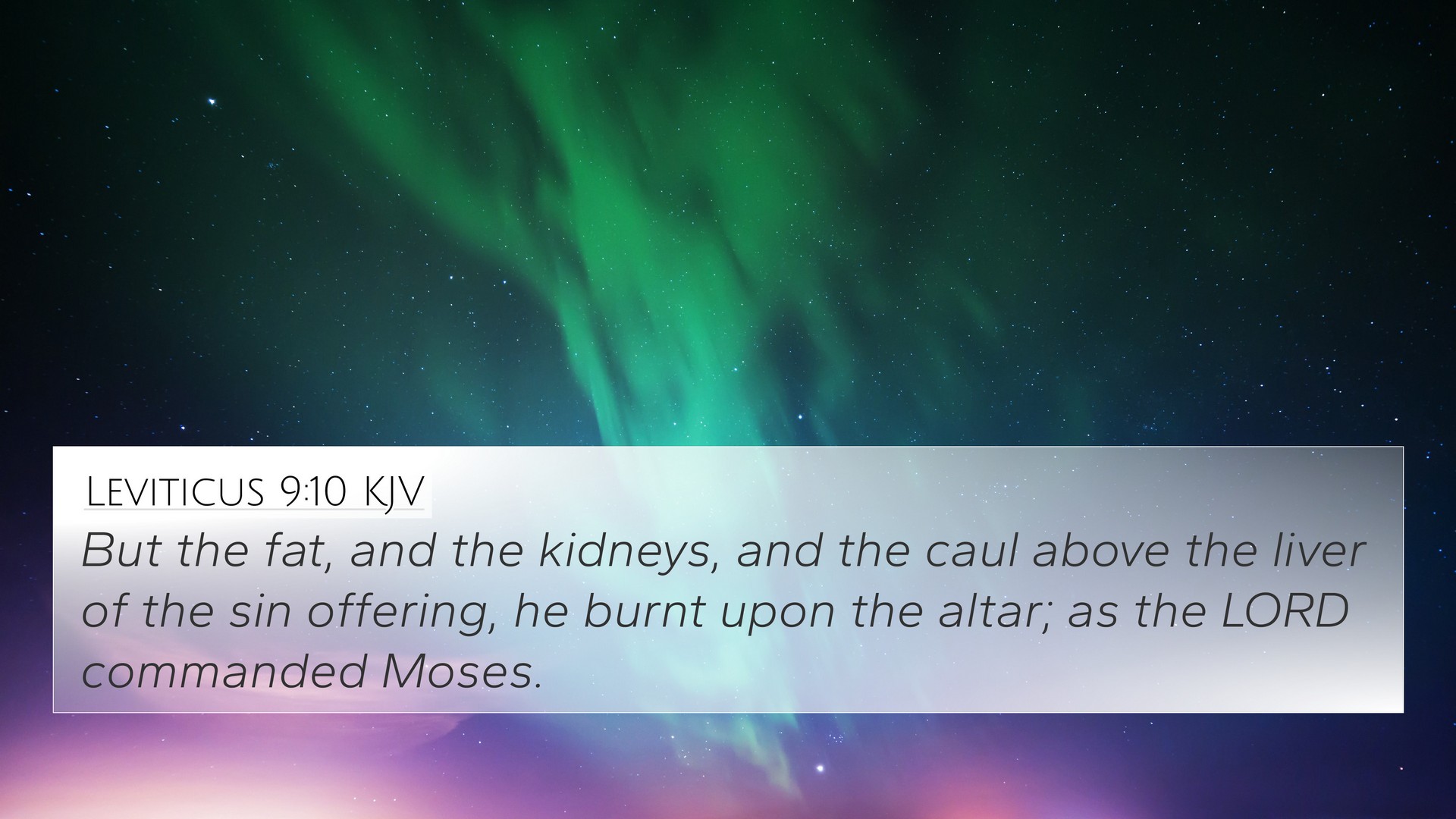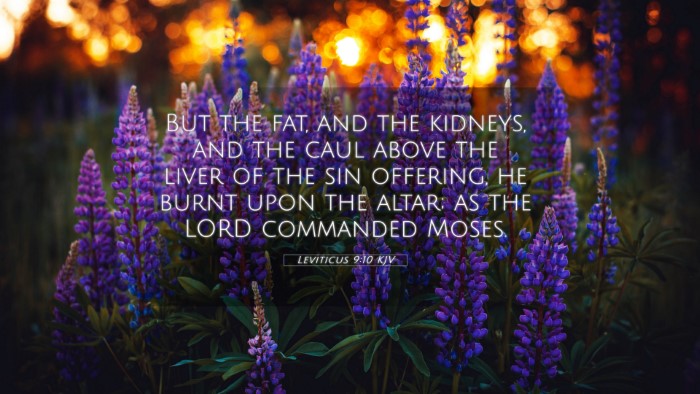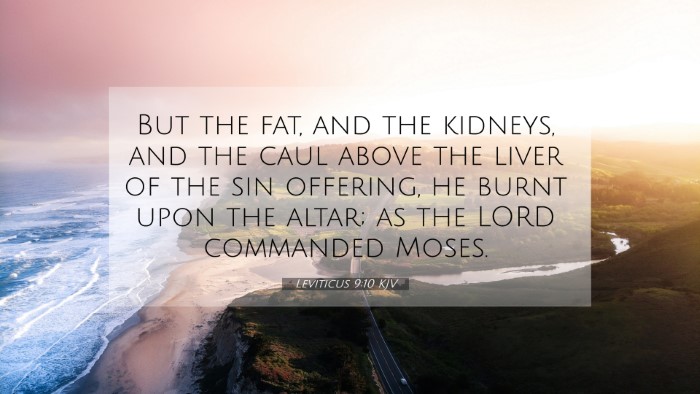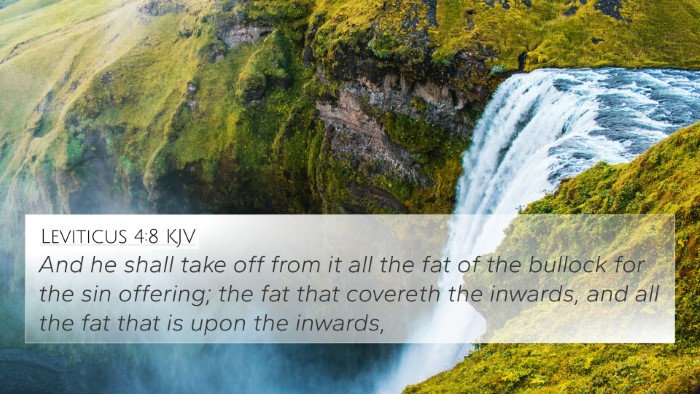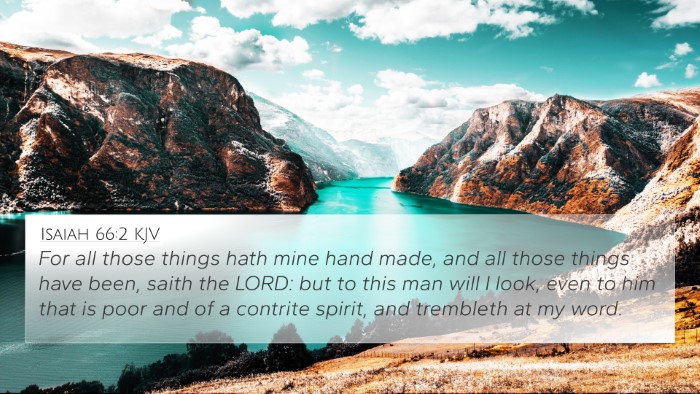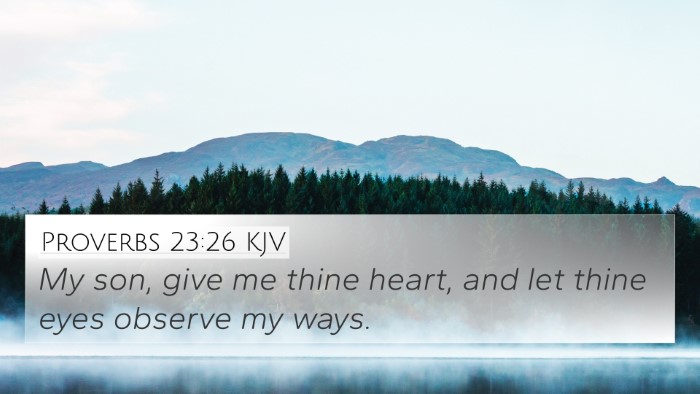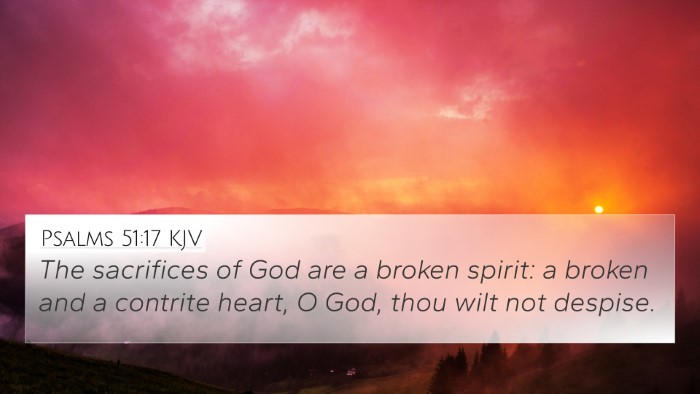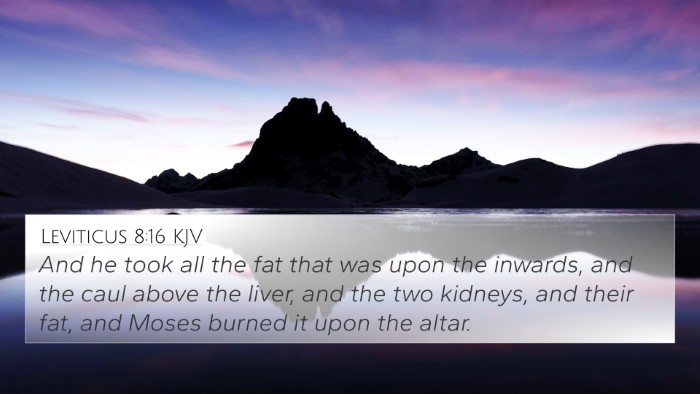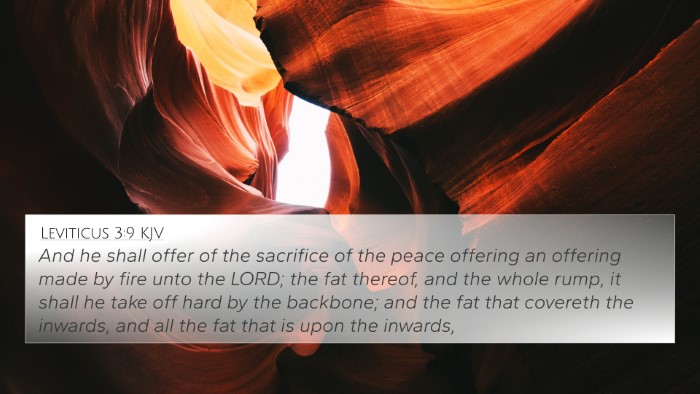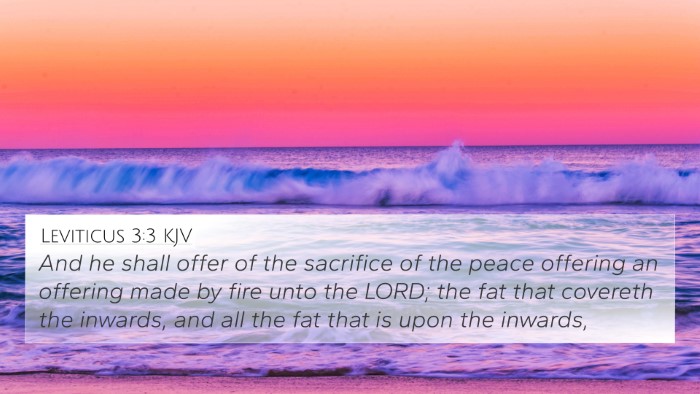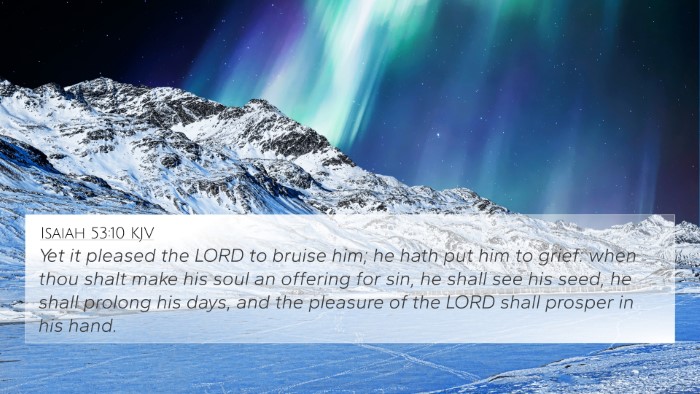Understanding Leviticus 9:10
Leviticus 9:10 states, "But the fat and the kidneys and the fat covering the liver of the sin offering he burned on the altar, as the Lord had commanded Moses." This verse highlights specific instructions given to Moses concerning the offerings brought to God. The detailed guidelines for sacrifices serve as a backdrop to understanding divine holiness and the nature of atonement.
Summary of Insights from Commentaries
Insights from various public domain commentaries—such as those by Matthew Henry, Albert Barnes, and Adam Clarke—emphasize the significance of obedience in performing sacrificial rites as well as the typology presented in these practices.
Key Themes
- Obedience to God's Commands: The verse reflects the necessity of following divine instructions precisely, showcasing that God's laws are not arbitrary but are rooted in His holiness.
- Symbolism of Sacrifice: The components of the offerings, especially the fat, represent the best portion given to God, signifying honor and reverence.
- Foreshadowing of Christ: The rituals can be interpreted as types or symbols representing the ultimate sacrifice of Jesus Christ, as elaborated in the New Testament.
Cross-References
Leviticus 9:10 has several notable connections throughout the Bible, illustrating the rich tapestry of scripture and the thematic links that unify the text:
- Leviticus 4:10: Details the handling of the sin offering, showing a consistent approach to sacrifices.
- Hebrews 10:4: Discusses the inadequacy of animal sacrifices compared to the sacrifice of Christ, revealing the ultimate purpose behind these rites.
- Exodus 29:13: Provides a description of the offerings made during the consecration of the priests, highlighting continuity in sacrificial practices.
- Romans 12:1: Encourages believers to present their bodies as living sacrifices, illustrating that sacrifices continue in a spiritual context.
- 1 Peter 2:5: Describes believers as living stones being built into a spiritual house, symbolizing the priesthood of all believers.
- John 1:29: Refers to Jesus as the Lamb of God, linking the sacrificial system to the ultimate sacrifice.
- Isaiah 53:5: Foretells the suffering servant, whose sacrifice brings healing.
Bible Verse Connections and Thematic Analysis
The narratives surrounding Leviticus 9:10 offer extensive opportunities for thematic Bible verse connections. These include the understanding of atonement, holiness, and the nature of true worship, which are consistently woven throughout the scriptures.
Comparative Bible Verse Analysis
In comparative studies, one can explore how various Biblical passages resonate with the teachings found in Leviticus 9:10. For instance, analyzing the sacrificial system in the Old Testament against the New Testament revelations about Christ allows for deeper insights into the intentions of God throughout history.
Tools for Bible Cross-Referencing
- Bible Concordance: This tool aids in locating specific words and phrases to further explore themes and connections across scripture.
- Bible Cross-Reference Guide: Essential for finding relationships between texts, enhancing understanding through a multi-faceted lens.
- Cross-Reference Bible Study: Techniques to engage scripture holistically, considering both Old and New Testament links.
Applications for Modern Believers
Understanding the context and implications of Leviticus 9:10 encourages believers to reflect on their relationship with God under the new covenant. By acknowledging the historical significance of sacrifices, Christians can better appreciate the redemptive work of Christ.
Conclusion
Leviticus 9:10 serves as a critical reminder of God’s requirements for holiness and the necessity of taking divine commands seriously. As we engage in Bible verse cross-referencing, we uncover not only the depth of this one verse but also its resonance throughout the entirety of scripture. This process of linking Bible scriptures enhances our understanding, providing a rich tapestry of theological insight.
What to Explore Next
If you're seeking further understanding, consider exploring how this verse connects to broader sacrificial themes in the Bible or seek out specific cross-references that elaborate on the ideas presented within Leviticus 9:10.
